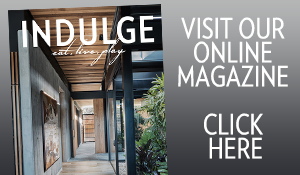The Brisbane 2032 Olympic and Paralympic Games are a once-in-a-generation opportunity to shift our global arts and culture standing, according to a new analysis by A New Approach (ANA).
The new Analysis Paper, Pathways to Becoming a Cultural Powerhouse: Perspectives for Impact in Arts, Culture and Creativity, explores case studies from South Korea, France and Brazil. The paper describes steps these nations took to leverage their hosting of the Games to enhance their cultural position and global standing, achieving lasting cultural, social, and economic benefits.
Case studies about South Korea, France and Brazil show how the Games could strengthen Australia’s cultural and creative industries and enhance Australia’s global reputation. CEO of ANA Kate Fielding said, “Australia is well positioned to present a contemporary view of our culture to the world when we host Brisbane 2032.”
“This isn’t just a sports mega-event, it’s a cultural mega-event too. Along with the popular Opening and Closing Ceremonies, the Games include a four-year Cultural Olympiad and a 20-year Legacy Strategy with arts, culture and creativity outcomes. Through these, Australia can deliver a program that presents our maturing cultural confidence and our contemporary national identity to the world.”
Ms Fielding highlighted that the Games will be one of the biggest events in Australia’s history and will have an unparalleled global audience. Australia can learn broad lessons from the experiences of the countries featured in the paper, including the importance of planning for impact, sustaining cultural policy, integrating cultural reporting, and investing in cultural relations,” she said.
“We already have high cultural participation here in Australia. Currently we also have unprecedented policy focus and development at the national, state and territory and local government levels. The time is right for us to act strategically, collaboratively and purposefully. Brisbane 2032 adds urgency to this. What we need now is a long-term national cultural plan with its development facilitated through a Ministerial Council as part of the National Cabinet. Cultural Ministers should also pursue the creation of a cultural relations institute. It’s not good enough for Australia to be one of only two nations in the largest 15 economies in the world to not already have an institute of this type,” Ms Fielding said.
Ms Fielding suggests that the Cultural Ministers should look at the successive National Sports Plans and Strategies to promote collaboration across all levels of government to achieve long-term, practical outcomes.
Readers also enjoyed our story about LIMBO – THE RETURN at Brisbane Festival










